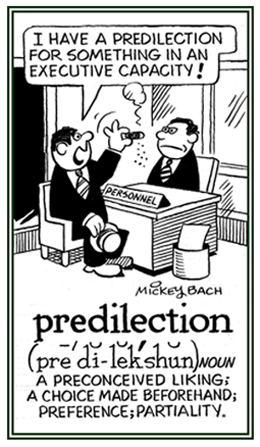legi-, -leg-, -ligi-, -lig-, -lect-, -lectic, -lection
(Latin: read, readable [to choose words; to gather, to collect; to pick out; to read, to recite])
Closely related to lexi-, -lexia, -lexic, -lexis (Greek: a word; a saying, a phrase; speaking).
leguminivorous
Eating beans, peas, and other legumes.
leguminous
1. Relating to or consisting of legumes.
2. Belonging to or typical of the family of plants that has pods as fruits and roots that bear nodules containing nitrogen-fixing bacteria.
2. Belonging to or typical of the family of plants that has pods as fruits and roots that bear nodules containing nitrogen-fixing bacteria.
lesson
1. A period of time spent teaching or learning a subject.
2. Some useful knowledge or sense that results from direct experience.
3. The underlying sense is “something to read or listen to”.
2. Some useful knowledge or sense that results from direct experience.
3. The underlying sense is “something to read or listen to”.
neglect (verb), neglects; neglected; neglecting
1. To fail to give the proper or required care and attention to someone or something: Jackie was a very young mother and neglected her baby, so it was given to the care of a foster family.
2. To fail to do something, especially because of carelessness or forgetfulness: She wasn't used to tidying up the kitchen and completely neglected washing the dishes for a week!
3. Etymology: from Latin neglectus, past participle of neglegere, "to make light of, to disregard"; literally, "not to pick up"; variant of neclegere, from Old Latin nec, "not" + legere, "to pick up, to select".
2. To fail to do something, especially because of carelessness or forgetfulness: She wasn't used to tidying up the kitchen and completely neglected washing the dishes for a week!
3. Etymology: from Latin neglectus, past participle of neglegere, "to make light of, to disregard"; literally, "not to pick up"; variant of neclegere, from Old Latin nec, "not" + legere, "to pick up, to select".
neglectful
1. Not showing due care or attention.
2. Characterized by neglect; disregardful; careless; negligent.
2. Characterized by neglect; disregardful; careless; negligent.
neglectfully
In a neglectful manner, or failing to give proper care or attention to something or someone.
negligee
A woman's long nightgown made of thin silky often see-through fabric. The underlying idea is of having failed to get fully dressed.
negligence
1. Habitually careless or irresponsible.
2. In law, guilty of failing to provide a proper or reasonable level of care.
2. In law, guilty of failing to provide a proper or reasonable level of care.
negligent (adjective); more negligent, most negligent
1. Descriptive of insufficient care or attention by someone: Harry's mother was a negligent housekeeper because she was totally slack and thoughtless in keeping the house clean.
2. Characterized by neglect and undue lack of concern: Judy was more interested in playing games on her computer and was very negligent about getting her homework done on time.
2. Characterized by neglect and undue lack of concern: Judy was more interested in playing games on her computer and was very negligent about getting her homework done on time.
negligently
In a negligent manner or characterized by neglect and undue lack of concern.
negligible
So small as to be meaningless; insignificant.
negligibly
1. So small as to be meaningless; insignificant.
2. Not worth considering.
2. Not worth considering.
phonoselectoscope
A device for auscultation of the lungs that suppresses the normal lower-pitched sounds and enables higher-pitched, abnormal sounds to be heard more easily.
1. A special liking or preference for something: Jim's son and daughter each had a predilection for adventure stories.
2. A tendency to think favorably of something in particular; a partiality: Kate has a predilection for rich desserts after each lunch and dinner.
3. Etymology: from Latin praedilectus, prediligere, "to prefer before others"; from prae-, "before" + diligere, "to choose, to love"; also from French predilection, "before others."

© ALL rights are reserved.
Go to this Word A Day Revisited Index
2. A tendency to think favorably of something in particular; a partiality: Kate has a predilection for rich desserts after each lunch and dinner.
3. Etymology: from Latin praedilectus, prediligere, "to prefer before others"; from prae-, "before" + diligere, "to choose, to love"; also from French predilection, "before others."
Based on diligent which came from dis-, "apart" + legere, "to choose".

Go to this Word A Day Revisited Index
so you can see more of Mickey Bach's cartoons.
Pro scientia et religione.
For science and religion.
Motto of Denver University, Colorado, USA.


